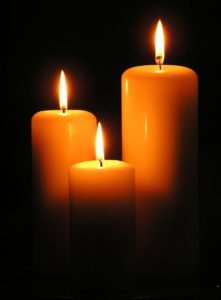Why Rituals Are Important, Pt 1.
December 15, 2021Of all the common misconceptions people have about working with a funeral home upon the loss of a loved one, one of the most common ones has to do with the purpose of ritual.

In the past, funerals were simple. You’d have a wake at a funeral home, a service at a house of worship, and a graveside ceremony, followed by a more informal gathering of family and friends. When a death occurred, this was what many families did. It brought people together for a stated purpose, it had a beginning, middle, and end, and it allowed people to come to grips with a loss in the supportive presence of their families and communities.
There are still a lot of families that follow these sorts of rituals, but as times changed and people became more secular, many families have come to view funeral rituals as a strictly religious phenomenon. As a result, many families have opted to skip them—from the wake, to the funeral, to services of any kind. In doing so, however, they may have denied themselves the essential psychological benefits that come with performing a ritual upon the death of a loved one.
The fact is, rituals are not necessarily religious—humans have celebrated rituals for thousands of years, and they take countless forms. “As far back as humans go, so does ritual,” says Sairey Luterman, a Lexington-based grief counsellor. “It’s how we’re built to mark time, and to mark seasons, and to mark our lives.”
Rituals have existed for so long because they work. But today even scientific researchers are finding that rituals can be extraordinarily helpful to people who have experienced a loss. “Even simple rituals can be extremely effective,” noted the publication Scientific American in 2013. “Rituals performed after experiencing losses do alleviate grief… What’s more, rituals appear to benefit even people who claim not to believe that rituals work.”
Luterman saw the power of rituals firsthand during the Covid-19 crisis. Out of necessity, many families who lost loved ones were not able to gather to mark their passing. Today, Luterman says she sees “a visible difference” between the people who did ultimately hold a service or a gathering of some sort, versus they people who didn’t. “It’s really, really important,” she says. “Does it make you like jump out of bed and you’re happy? No. But it helps you begin to integrate the loss. It helps us accept that something really important has changed in our lives.”
“We need community and ritual to grieve,” she continues. “We need to hear and see other people’s experience of the loss. It is a community-based experience. Do I think everyone needs to cry to grieve? Absolutely not. But I think that it’s a good idea for people to be shoulder to shoulder at some kind of an event, talking about the person and remembering them.”
We’ll discuss some options even secular families have for performing or even creating rituals in a future post. But they don’t need to be elaborate, says Luterman. “We can be talking about something as simple as lighting a candle and standing by it for a few minutes and letting it burn.” she says. “It’s lovely, and comforting, and helps us mark the passing of the person.”
Leave a Comment